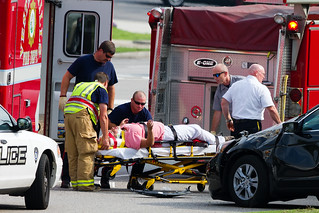No Win No Fee claims generally refer to personal injury claims and were brought in to replace legal aid for personal injury cases in the mid 90s. A no win no fee claim cuts out the middleman by enabling the client with the claim and their chosen solicitor to come to a mutual agreement regarding the legal costs which suits both parties.
No Win No Fee quite simply means that, if the client making the claim doesn’t win their case, they don’t pay the solicitor and insurance payments will cover any costs incurred by the defendant.
If, on the other hand, the client making the claim does win their case, they will normally receive full compensation without any deductions and the defendant will pay all legal costs and any other fees incurred.
However, not all personal injury claims are accepted by No Win No Fee solicitors so it is imperative to check whether the case fits the criteria of the law firm in question before pushing forward a claim. There can be major differences and risks between a whiplash claim or a slip injury claim, which are generally more straightforward, and other types of injury claims such as suspected medical negligence or claims for sport injuries which are more complex.
How does a No Win No Fee Claim Work?
When an individual suffers an injury which wasn’t their fault they may be able to put in a No Win No Fee personal injury claim. The first step is to find a solicitor who specialises in No Win No Fee cases or is happy to take on the case on a No Win No Fee basis.
Once a solicitor has been appointed a letter will be drafted and sent out to the defendant informing them of the client’s intention to seek compensation for the injuries they have suffered.
The client will then be required to undergo a medical assessment to determine the severity of the injury and the effects the injury has had on the client.
Once the assessment has been completed and the solicitor has had time to evaluate the assessment results he will then be able to calculate the amount of compensation due using the findings from the assessment, the client’s loss of earnings and any further expenses incurred because of the injury.
More often than not a No Win No Fee case will be settled out of court with all necessary correspondence undertaken by the solicitors acting for both parties concerned.
Occasionally, if a claim is disputed by the defendant, then both parties may have to attend court to try to reach an agreement.
The solicitor acting on behalf of the client with the claim will not receive their fee if the claim is unsuccessful and the solicitor will always ensure that the client has insurance in place to cover the defendant’s legal costs should the claim not go through.
If the client wins the case then, in most circumstances, he or she will be awarded the full compensation amount and all legal fees, medical report costs and other costs incurred by the client will be paid by the defendant.
The solicitor acting on behalf of the client with the claim will also be entitled to a further fee to be paid by the defendant which is known as the success fee.
Personal Injury
Personal injury is when someone suffers an injury due to the result of someone else’s negligence. Personal injury may include whiplash, torn ligaments, bone fractures or lacerations.
When an individual has a case of personal injury then the more evidence they can supply their solicitor with the better and, although the medical assessment will form the basis of the case, any further evidence will make the case a stronger one.
Further evidence could include:
- Medical statements by doctors, nurses and specialists who witnessed and treated the injury
- Statements from individuals who witnessed the accident itself
- Photographs of the accident and the injury
- Accident logs/books – All businesses are required to have an accident book to log the details of an accident when it happens. In cases where the accident is quite severe an employer would also be expected to report the accident to the Health and Safety Executive (HSE).
For further no win no fee advice, Lloyd Green Solicitors provide specialist help.






